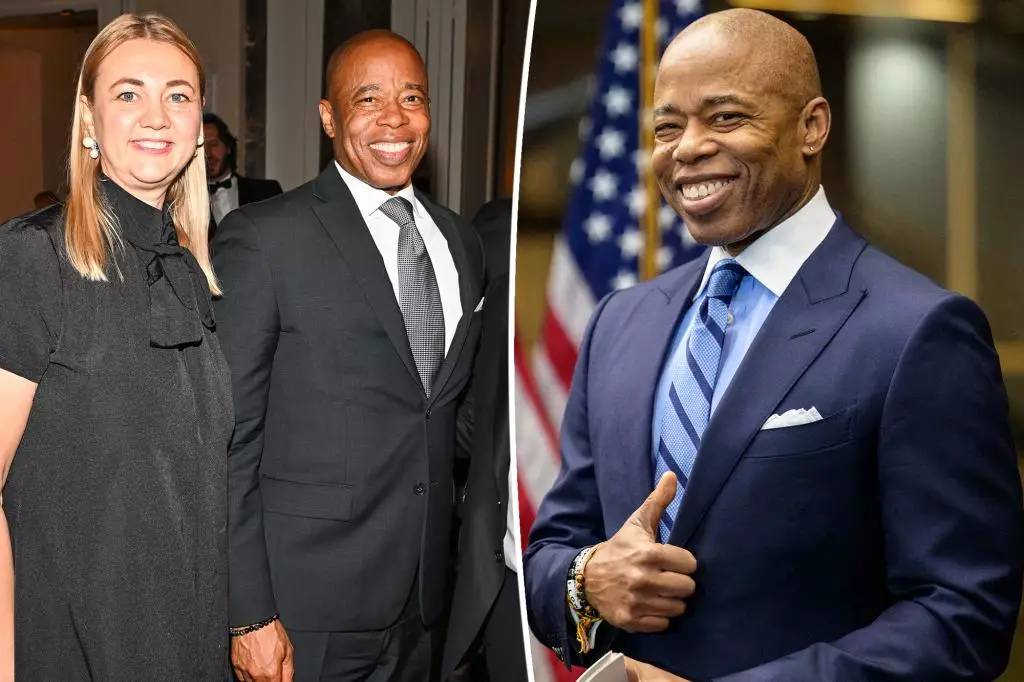In a perplexing turn of events, the anticipated afterparty following the glitzy Met Gala, traditionally a showcase for the who’s who in fashion, has evaporated seemingly before it was even on the cards. Alisa Roever, an advisor and close ally to Mayor Eric Adams, took to social media to announce an event titled “mayor gala” scheduled for the evening of May 5th at Gracie Mansion. This proclamation sent shockwaves through the city’s social fabric, raising expectations for what would have been an extravagant gathering. However, in a classic case of miscommunication or perhaps overzealous promotion, it quickly became evident that this so-called gala was merely vaporware.
Behind the Dazzling Promises
Mayor Adams found himself caught off guard regarding the claims made by Roever, with a representative clarifying that the city had no knowledge of any event scheduled at Gracie Mansion. This disconnect raises significant questions about the credibility of those within Adams’ inner circle and their grasp of the mayor’s commitments. Was the announcement a casual daydream, or a misguided attempt to create buzz around the mayor’s brand? Regardless of intent, the fallout from such false promises can tarnish Adams’ reputation and that of his administration.
In the wake of these claims, Roever’s hasty removal of the Instagram post only added to the confusion. When journalists sought clarification, her terse response of “Sorry, not anymore,” merely underscored the chaotic nature of the entire ordeal. This isn’t an isolated incident; past occurrences—including the highly publicized disappearance of another gala promised by Roever—paint a troubling picture of persistent miscommunication.
A Pattern of Misguided Expectations
Analysts cannot ignore that this is not the first time Roever’s proclamations have fallen flat. A particularly striking example came from her earlier ventures, including an event linked to the Angel Ball, where enthusiastic expectations were crushed when it became apparent that the mayor would not attend. Adams was reported as having no knowledge of such commitments, exposing a fragile network of operations that not only affects public perception but also the trust between elected officials and the constituents they serve.
The latest misstep begs a larger inquiry into how such significant events are planned and communicated. With ticket prices soaring into the thousands, as seen with canceled charity events, one has to wonder who will bear the brunt of these slip-ups. Guests left in the lurch, with scant communication about cancellations, bring forth not just frustration, but a risk of financial repercussion for the nonprofits involved.
Implications for Political Credibility
As the Met Gala approaches, the questions surrounding the mayor’s potential presence linger palpably in the air. Could this series of missteps impact Adams’ standing with key stakeholders, especially in an environment where optics are everything? It’s crucial for him to assert control over his brand and counter the narrative that his administration is riddled with confusion and lack of direction.
In an age where public trust can hinge on mere appearances, mayors and their teams must meticulously manage their public personas, ensuring that enthusiasm does not outstrip reality. Mayor Adams must not only focus on events that genuinely reflect his commitments but also rein in his inner circle to foster a more cohesive, transparent communication strategy. The challenge now rests in whether his administration can turn around this momentum before it further unravels in the limelight of impending fashion culture.

